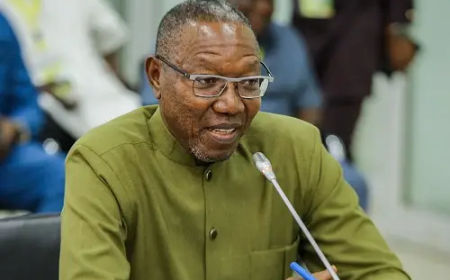UG Suspends Lecturer, 16 Students Over Sexual Harassment, Drugs, and Misconduct
The University of Ghana (UG) has taken disciplinary action against a lecturer and 16 students following allegations of sexual harassment, drug-related offenses, and other forms of misconduct. The institution, known for its strict academic and ethical policies, has reiterated its commitment to upholding integrity within its community.

According to a statement released by the university’s disciplinary committee, the lecturer, whose identity has not been disclosed, was found guilty of sexually harassing a student. The case, which was thoroughly investigated, resulted in an immediate suspension pending further action.
Additionally, 16 students were sanctioned for various infractions, including drug use, academic malpractice, and other acts of indiscipline. Among them, some were found in possession of illegal substances on campus, while others engaged in disruptive behaviors that violated the university's code of conduct.
The University’s Response
The university’s management emphasized its zero-tolerance policy on misconduct and reaffirmed its dedication to providing a safe and conducive learning environment. In a statement, a university spokesperson said, “The University of Ghana upholds the highest standards of discipline and will not condone any form of harassment, drug abuse, or unethical behavior.”
The institution has assured that further investigations will continue, and appropriate legal measures may be pursued where necessary. Meanwhile, affected students have been given the opportunity to appeal their suspensions, provided they present compelling evidence in their defense.
Reactions and Public Concern
The incident has sparked widespread discussions within the academic community and beyond. Students and faculty members have expressed mixed reactions, with many supporting the university’s strict stance on discipline. Others, however, have called for more preventive measures, such as counseling services and sensitization programs, to curb misconduct before it escalates.
A student leader remarked, “While disciplinary actions are necessary, the university must also invest in education and awareness to prevent such issues from occurring in the first place.”
Broader Implications
This development underscores the growing concerns about misconduct in higher education institutions across Africa and beyond. Universities are increasingly being called upon to implement stringent policies to combat issues of sexual harassment, substance abuse, and ethical breaches among both staff and students.
As the University of Ghana navigates this crisis, stakeholders will be keenly watching how it enforces accountability while ensuring justice and fairness in its disciplinary processes. The institution’s actions may serve as a precedent for other universities grappling with similar challenges.
Conclusion
The suspensions at UG serve as a stark reminder of the need for vigilance and strict enforcement of ethical standards in educational institutions. While disciplinary actions may act as deterrents, a proactive approach involving education, counseling, and institutional reforms remains essential in fostering a culture of integrity and respect within academia.
What's Your Reaction?




















































































